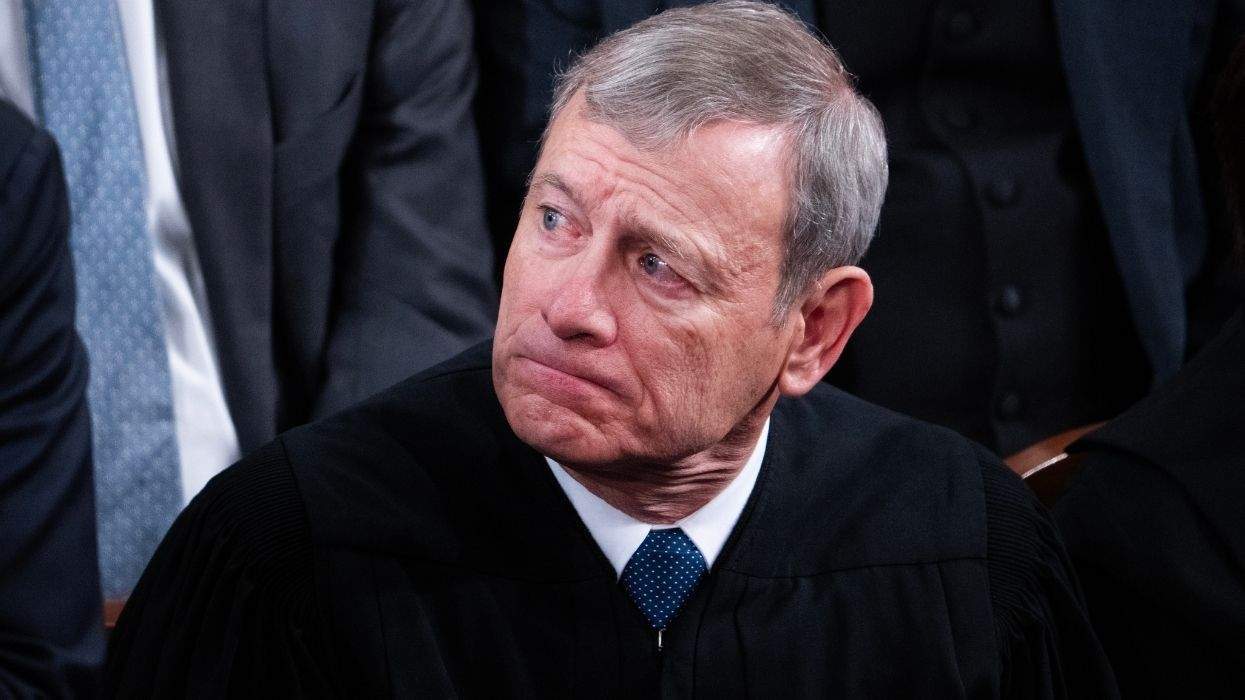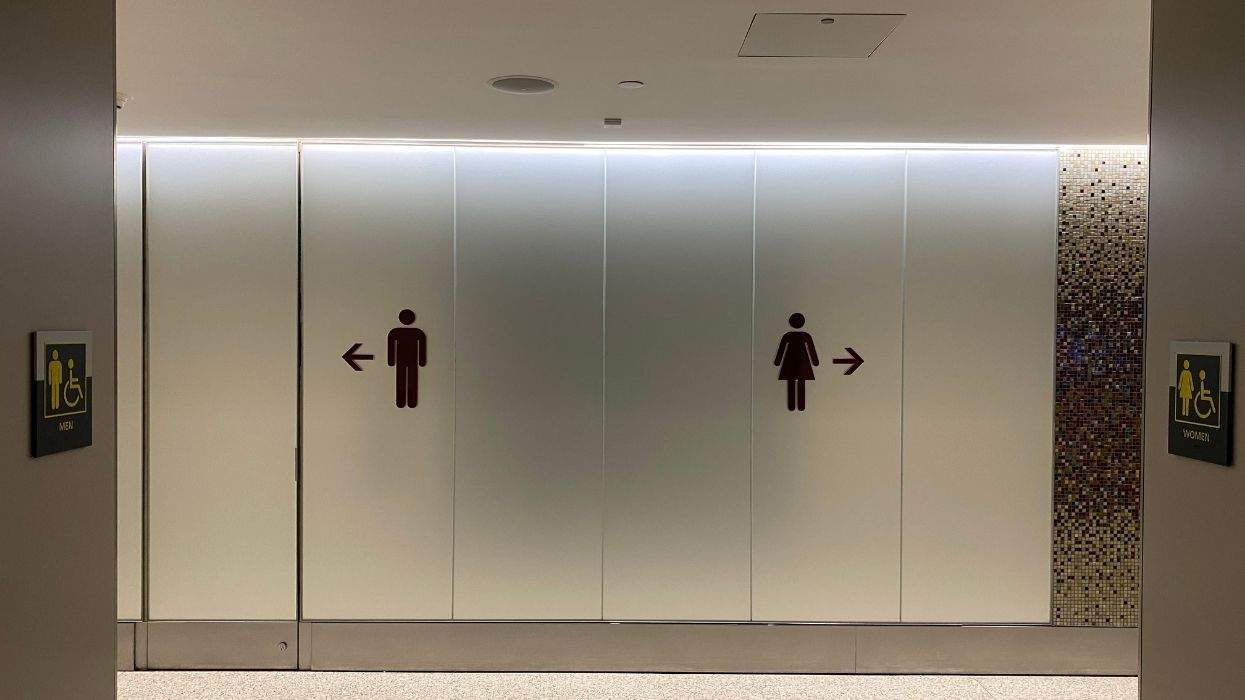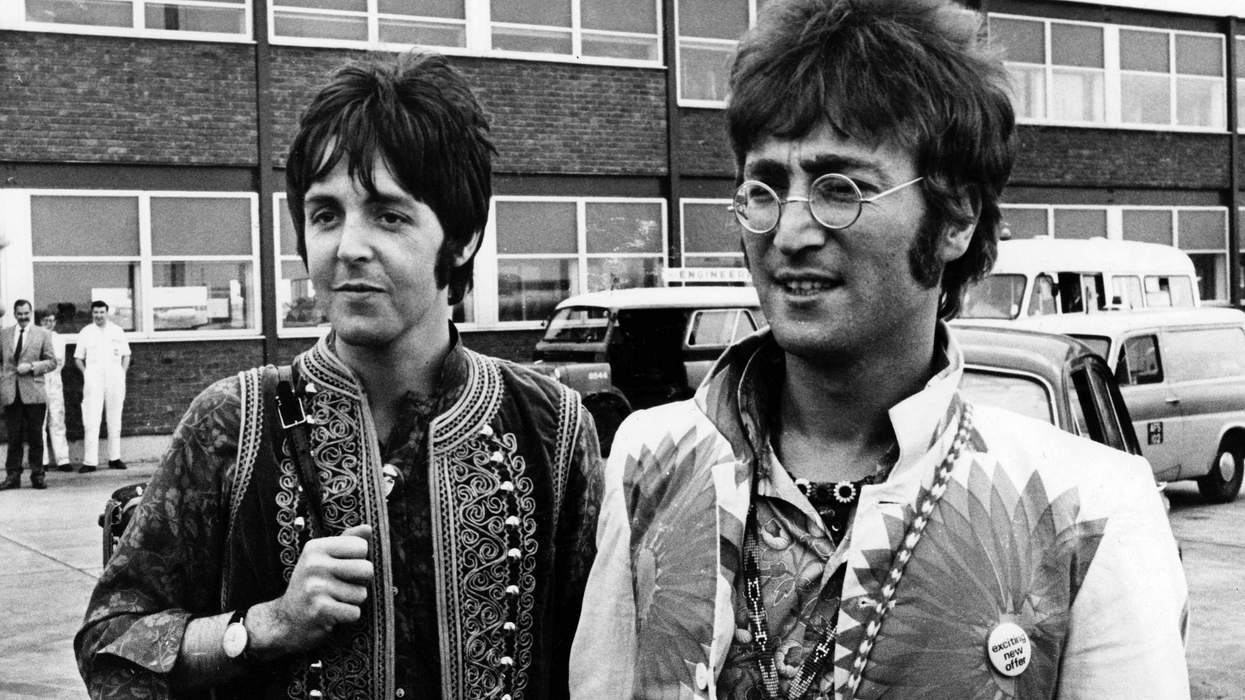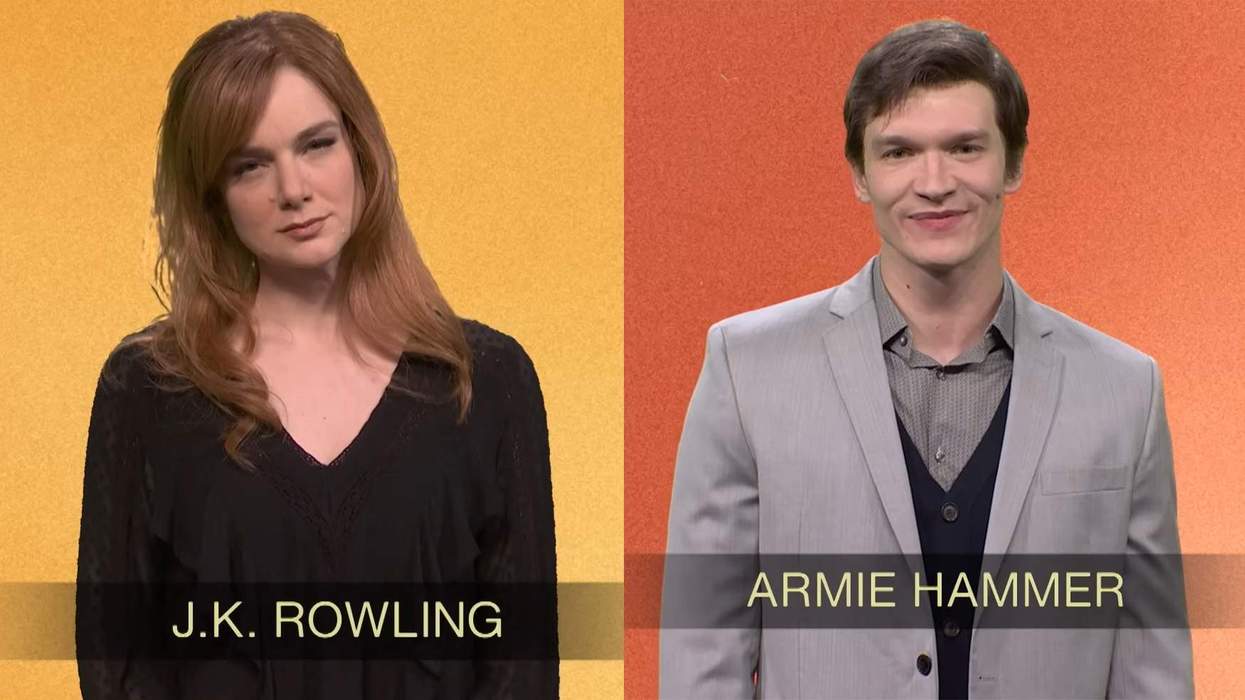The 1945 movie Mildred Pierce opens on a beach house at night. Gunshots ring out from inside, where a moustachioed, tuxedoed man clutches his chest. As he falls to the floor, he moans weakly, "Mildred!" A door slams, and a car peels away.
So begins one of the great films noir of the first half of the 20th century. Mildred Pierce is a murder mystery cum women's picture (as they were termed at the time, a vague precursor to today's chick flick) in which Joan Crawford plays a headstrong businesswoman bent on doing anything to protect her even more headstrong daughter, Veda.
The film was a major comeback for Crawford. She'd recently escaped the shackles of her MGM contract and turned in a riveting, steely performance that laid a lifetime (and beyond) of camp cred on her padded shoulders and restored her box office stature. Mildred Pierce earned the controversial actress her only Academy Award (she was nominated for Best Actress twice afterward, for 1947's Possessed and 1952's Sudden Fear). She didn't attend the ceremony, but, as depicted in her daughter Christina's chronicle of life with a monstrously abusive mother, Mommie Dearest, she listened on the radio and invited the press into her bedroom for interviews after she'd won.
Mildred Pierce and Joan Crawford -- two larger-than-life figures -- are ineluctably linked in the gay cultural canon. Which is why the moment word of a Mildred Pierce remake was reported, online commenters started tossing out phrases like "gay sacrilege."
So let's take a deep breath and step back for a moment to consider the facts: The 5 1/2-hour Mildred Pierce miniseries coming to HBO March 27 is not a remake of the Crawford movie. Rather, it is a new adaptation of the 1941 novel, which is vastly different from the first screen version it spawned and is a left-behind classic in itself.
First of all, there is no murder (cue melodramatic music!). "The biggest thing in the [original] movie is the murder," says Christine Vachon, an executive producer of the don't-call-it-a-remake. "You take the murder away from the movie, there is no movie."
Take away the murder and you have James M. Cain's original book, a stunningly ahead-of-its-time depiction of a strong, independent, and sexual divorcee struggling to fulfill her own career aspirations so that she can make a great life for her daughter -- all set against the backdrop of the Depression in Southern California (the Crawford movie was set in the 1940s and ditched the more meaningful considerations of class mobility).
"She is incredibly modern," says Todd Haynes, who cowrote and directed the new Mildred Pierce. Haynes first made his mark on the cultural map with Superstar: The Karen Carpenter Story, a 43-minute retelling of the life and death of the anorexic 1970s singer, acted out by Barbie dolls. A hit at film festivals in 1988, it was pulled from circulation when Carpenter's brother, Richard, won a copyright infringement lawsuit against the film, condemning it to a future of bootleg house-party viewings and renegade YouTube postings.
Haynes's first full-length feature, the art-house hit and 1991 Sundance Film Festival Grand Jury Prize-winner Poison, brought queer studies to life on-screen as it introduced his unique fusion of the academic and the sexual. Its three unconventional stories featured unapologetically graphic depictions of gay sex and an undercurrent of rage against government policies on AIDS. Along with Gregg Araki's The Living End and Tom Kalin's Swoon, Poison inspired the term "new queer cinema" and at the same time earned Haynes derision from the Right, which dubiously dubbed him "the Fellini of fellatio."
His follow-up film, Safe, was a prescient, love-it-or-hate-it horror film of sorts on toxicity, alienation, and modern life, starring Julianne Moore; next came Velvet Goldmine, a British glam-rock fantasia set in the 1970s that must have been an inspiration for the Scissor Sisters.
His projects have been wildly diverse (his most recent film was I'm Not There, a star-studded, deconstructed Bob Dylan biopic), but Haynes's 2002 masterpiece, Far From Heaven, brought him into the mainstream, earning four Oscar nominations, including Best Actress for Moore. Haynes's ode to Douglas Sirk's 1950s melodramas can now be seen as a precursor to his Mildred Pierce. If anything, though, his approach to Pierce is the opposite of Heaven. Here, instead of reveling in the genre's conventions, Haynes restores a well-known melodrama to its true origins as a sexually frank classic of Depression-era fiction.
Jon Raymond, who has written movies for indie director Kelly Reichardt (Meek's Cutoff, Wendyand Lucy), gave Haynes the book. "I was on a plane back to New York reading it right after the economy collapsed in 2008, and I couldn't believe how current it was," Haynes recalls. He says he watched and loved the original Mildred Pierce when he was a semiotics major at Brown University, but the memory of all that fell away as he read the novel. "This is not a Depression story about dust bowls and bread lines," he explains, "it's a Depression story about middle-class pride and loss of identity, and you don't need to look very far to find examples of that everywhere you look [today]."
Haynes knew immediately that he wanted it to be his next project, which he would write with Raymond. He also knew he wanted Kate Winslet for the leading role. Partly because she lives with her children in New York and partly for financial reasons (New York State offers a substantial filming rebate), they decided to fake Southern California on the East Coast. "We went to L.A. and we looked at all the neighborhoods where the film takes place and we realized that the '30s of Los Angeles doesn't exist in Los Angeles either," he says as he sits on the terrace of West Hollywood's Sunset Tower Hotel, itself a rare rehabilitated relic of that era. Amazingly, his team found 1930s L.A.-style neighborhoods in Queens, Long Island, and Westchester County that--with the addition of some palm trees -- convincingly stand in for Glendale, Hollywood, Pasadena, and Laguna Beach. Haynes oversaw a meticulous re-creation of the book's middle-class milieu and its costumes and domestic interiors. The miniseries' luxurious time frame lets audiences sink into Pierce's world of pie baking, chicken cooking, and Scotch drinking. (That last one was shown in detail in the original movie, which glossed over the entrepreneurial spunk that yielded Mildred's eponymous restaurant chain.) Though daughter Veda is still full of rage, as played by Evan Rachel Wood, she is a more grounded presence than you'd expect given the actress's scenery-chewing as Sophie-Anne, the vampire queen of Louisiana, on True Blood. "I loved her on Once and Again," recalls Haynes of Wood's subtler performance in her first TV series.
Unlike some of his fellow directors, Haynes is not an "It's not TV, it's HBO" snob. "I love television," the New York-based filmmaker declares. "I mean, there are so many great shows, do I even have to mention them? Mad Men, Six Feet Under...right now I'm addicted to The Good Wife."
Pierce takes a complex view of mother-daughter relationships. "I think Mildred's need for approval from her child is something that every mother does feel, whether it's a daughter or a son, actually," says Winslet, herself a mother of both. "And with Veda being this determined, defiant creature, so out of Mildred's grasp... I think that in Veda, Mildred saw her own disappointments, like little pieces of Mildred kept dying every time she saw how brilliant and wonderful and rich Veda was."
It's a dynamic Haynes was eager to explore. "The perils of separation and the devouring of mothers and daughters by each other is innately dramatic," Haynes says. "Maybe gay men can understand that, like women, more than straight men. But," he adds, "I hate making these categories.
"I think female subjects remain the most colorful because women play this object in historical posturing, and particularly in changes in status and class," he continues. "Women play that out in how they dress and behave. Think of our moms and how they register social standing. Who we're supposed to be as a family is determined by the physical manifestations and values of the mother--my mom, certainly." As women change their hair and their clothes, he says, the cultural cues shift.
Not to take anything away from the Crawford film, but Haynes's approach is a more nuanced examination. Interestingly, Crawford herself is going through a bit of a reassessment lately, thanks to a biography, Possessed, by Donald Spoto, which contradicts the image cultivated by Mommie Dearest, just as Haynes's project prompts a reconsideration of Crawford's finest film. Cain's nearly forgotten masterwork is a deeply felt story filled with more melancholy than rage, about an ordinary woman who makes her circumstances extraordinary.
"Mildred creates this dynasty, this little empire of productivity out of romantic and familial frustration and yearning," the director explains. "So there's no clean character, there's no one uncontaminated, there's no Joan Crawford in this movie who's going to come out completely clean -- it's a very different story."
As if on cue, Jeff Klein, the owner of the Sunset Tower Hotel, comes over to say hello (Klein's fiance, John Goldwyn, was a producer on Haynes's I'm Not There). "I cannot wait for Mildred Pierce," Klein gushes sincerely. "It's my favorite movie ever."
"I hope you like it," Haynes replies. And without missing a beat, adds: "It's very different."















Charlie Kirk DID say stoning gay people was the 'perfect law' — and these other heinous quotes
These are some of his worst comments about LGBTQ+ people made by Charlie Kirk.